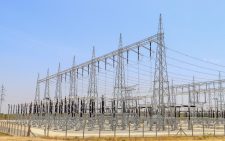State mulls options to close infrastructure funding gap

The government plans to boost infrastructure development projects with a special focus on roads through the use of multiple financing options in a new policy shift.
Roads play a significant role in the economy as they link producers and consumers. According to a report by Cytonn Investment, the government is upbeat about entering into Public Private Partnerships (PPPs) to achieve its development goals.
Kenya has, for instance, struck a $3.6 billion (Sh464.6 billion) agreement with the US-based infrastructure investment manager Everstrong Capital to construct a 440-km expressway connecting Nairobi and the port city of Mombasa. Local private investors will be given a chance to participate in the financing of the project.
“This significant partnership highlights the government’s strategy to utilise substantial private capital for major infrastructure projects, aiming to enhance connectivity, stimulate economic growth, and ensure sustainable development,” Cytonn says in the report. It notes that partnerships between the public sector and private entities facilitate improved efficiency, drive innovation, and provide the necessary funding for project delivery.
The government remains hopeful that the PPP strategy will be a success despite the recent development in the country involving the Adani Group. President William Ruto cancelled two major deals involving Indian billionaire Gautam Adani after the tycoon was indicted for fraud by US prosecutors.
The Adani Group was set to invest $1.85 billion in Kenya’s main airport in exchange for a contract to run it for 30 years, as well as a $736 million deal with the energy ministry to construct power lines.
Legislators are at the same time calling for efficient public and expert engagement before entering into such deals to avoid the issues of public unrest and bad reputation. In the current financial year, the total budget allocation for infrastructure, energy and Information and Communication Technology (ICT) stands at a substantial Sh477.2 billion, recording a 1.9 per cent increase from the Sh468.2 billion posted in the preceding financial year.
“This highlights the recognition of the capital-intensive nature of infrastructure projects and their direct impact on job creation and regional economic growth,” the report states.
However, for this to be effective, the government will have to tighten all the loopholes for money wastage as it has recently been flagged by the Controller of Budget that notable ministries splurge on non-essentials such as hospitality and allowances while executing their mandate.
The government is at the same time planning to issue infrastructure bonds to help realise its target. This, according to the report, has emerged as an important financial strategy for the government in a bid to raise additional resources for infrastructure projects beyond the limits of annual budgets. In September this year, the Central Bank of Kenya (CBK) released the auction results for the IFB1/2023/017 tap sale with a tenor to maturity of 15.7 years which had performed optimally with the overall subscription rate coming in at 234.6 per cent, after receiving bids worth Sh35.2 billion against the initially offered Sh15 billion.
From this, bids worth Sh32 billion were accepted translating to an acceptance rate of 91 per cent.
The report notes that these infrastructure bonds serve as both a dependable financing mechanism and a testament to investors’ trust in the government’s dedication to infrastructure advancement.
“The capital raised through these bonds plays a crucial role in supporting ongoing and future infrastructure projects, thereby promoting economic growth and development,” it adds.
Further, seeking credit and grants from international development partners is another strategy that the government banks on to bolster the success of its projects.
These partners include the International Development Bank (IDA), the African Development Bank (ADB) and the United Nations Development Programme (UNDP) among others.
These collaborations, according to Cytonns, provide not only financial support but also technical expertise and knowledge sharing.
Key contributors include the World Bank, which, through programmes like the Kenya Urban Support Programme (KUSP), has played a significant role in advancing urban infrastructure development.












